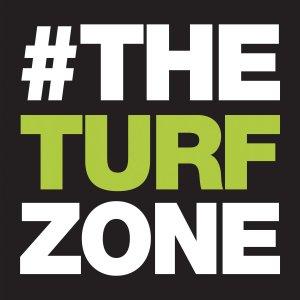The Turf Zone Podcast

Virginia Turfgrass Council – COVID-19 Relates to Everything These Days, Even Turfgrass Pathogens
Virginia Turfgrass Journal – David McCall, Ph.D., Assistant Professor, Virginia Tech Turfgrass Pathology We are all living in unprecedented times. Our daily routines have been thrown out the window in favor of Zoom meetings, trying to follow lesson plans for now-homeschooled children, and scouring the planet for the two-ply holy grail we used to take for granted. The novel coronavirus causing COVID-19 has flipped our world upside down as we live in our safe, sanitary, and socially distanced bubbles. But someone forgot to tell the grass (and associated pests)! Just because the majority of humans around the planet have modified their daily lives does not mean that any other biological organisms are going to follow our rules. The grass is still going to grow and the associated pests are still going to be a nuisance. This means that many of us in the professional turfgrass management industry are still doing “business as unusual” because it is essential. Sure, most of us are having to get by with smaller budgets, smaller staffs, staggered work shifts, and greater mental stress, but we’re still in the business of keeping grass alive. Some tasks are more time critical than others as we try to keep our heads above water until we are able to resume normal activities. I’m a pathologist so I’ll give a few thoughts on managing turfgrass diseases during these times. When I completed my Ph.D. in 2016, my wife got me a shirt that said “Trust me, I’m a doctor.” It was a fun shirt making light of the new letters attached to my name suggesting that because of these letters, people were suddenly supposed to take anything I say as gospel. Spend two minutes with me and you’ll quickly realize that I am not a great philosopher with the likes of Aristotle, Socrates, or the legendary Houston B. Couch. One thing I did learn about while completing my Ph.D. was how diseases spread in space and time. Plant disease epidemiology was probably my favorite course, taught by my co-advisor and a mentor, Dr. Anton Baudoin. We learned about disease progress curves, factors that influence the rate of spread, and ways to flatten the curve. Sound familiar? Today, the news is riddled with talk of flattening the COVID-19 curve. Strategies include washing your hands frequently, avoiding groups of 10 or more, practicing social distancing when in public, disinfecting common surfaces frequently, and keep your Amazon packages in the garage for three days. Strategies to reduce disease. See the connection with turfgrass diseases? Sure you do! All disease epidemics have a beginning phase, a spreading phase, and an ending phase. How each particular pathogen (turfgrass or otherwise) spreads depends on the life cycle, reproduction rate, surrounding environmental conditions, and the host’s ability to defend itself. This is more commonly referred to as the Disease Triangle and is part of any pesticide recertification class when discussing plant pathogens. We track outbreaks with disease progression curves, and not all diseases are created equal. Let’s take dollar spot and gray leaf spot as examples (Figure 1). Both can cause a lot of disease, and turfgrass managers should take both seriously, but the progression of symptom development is very different. For many in Virginia, dollar spot can appear in the spring when days are warm, nights are cool, and fog is heavy. The progression can last throughout the summer but often holds steady or tapers off during the warmest periods before resurging with a vengeance in the fall. The pathogen that causes gray leaf spot, on the other hand, will sit dormant until conditions are just right for an explosion of spore production, infection, colonization, and widespread death. But then the epidemic quickly ends, sometimes even faster than it began, after widespread distribution. Most spores and resulting infections do not result in complete plant death but many do because the pathogen is so prolific.






 Visit Podcast Website
Visit Podcast Website RSS Podcast Feed
RSS Podcast Feed Subscribe
Subscribe
 Add to MyCast
Add to MyCast